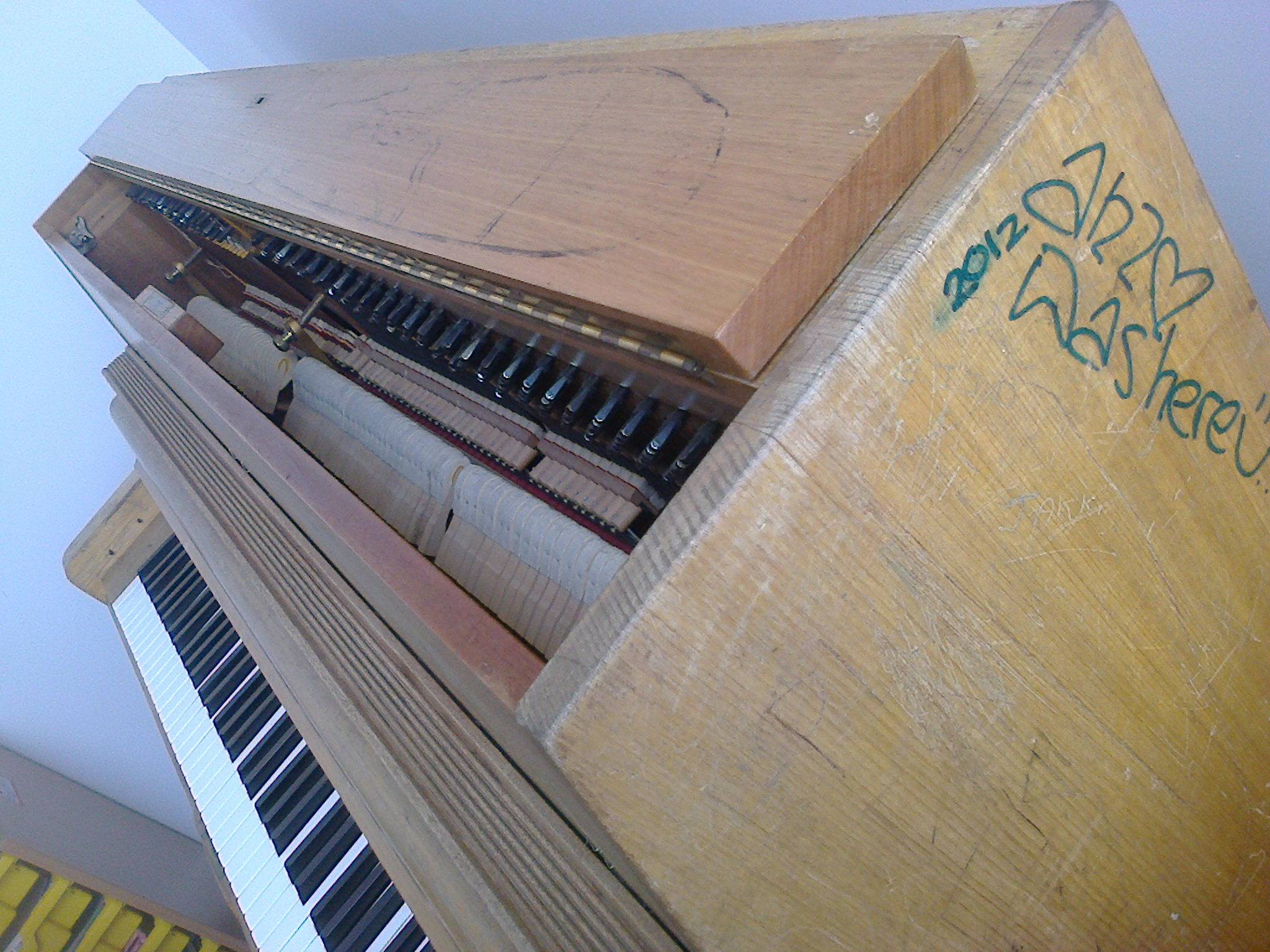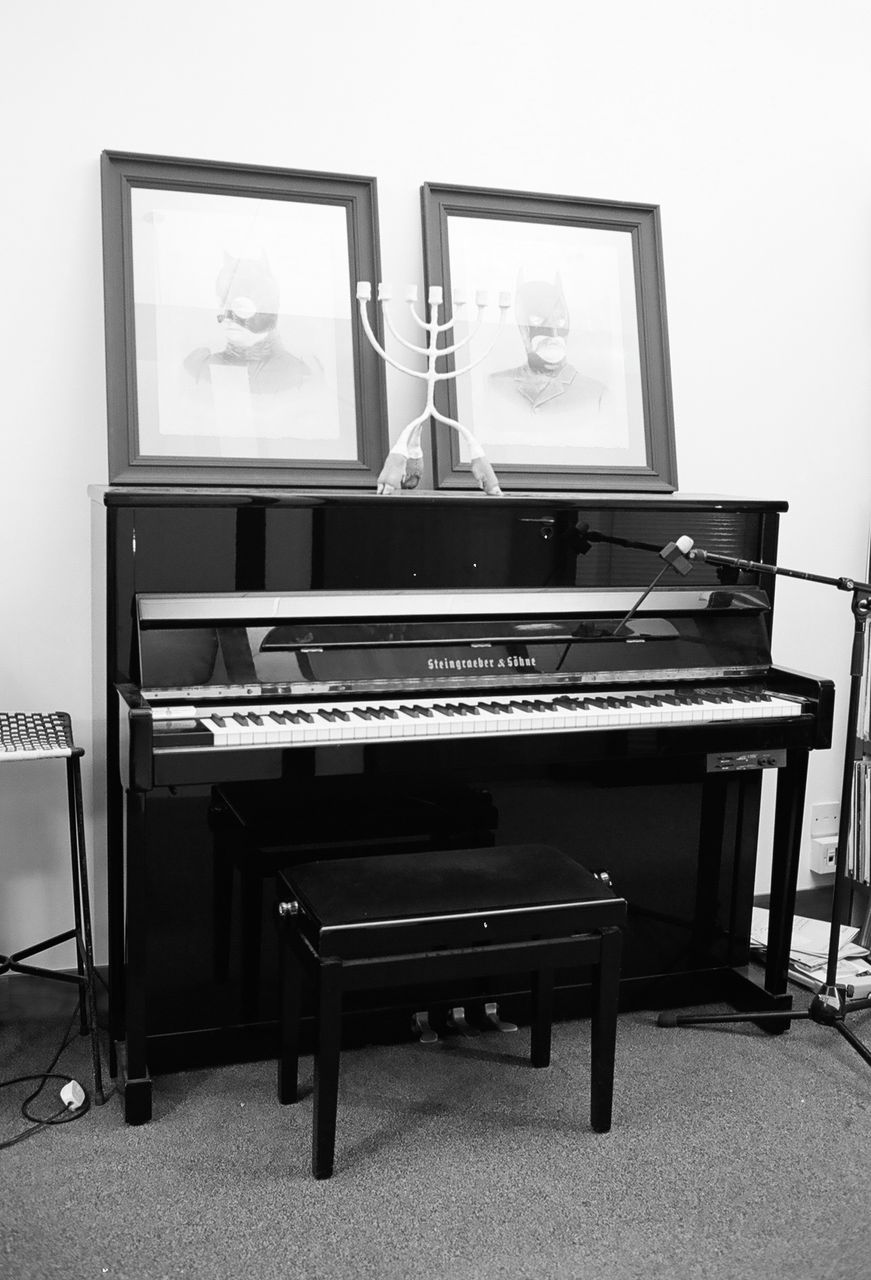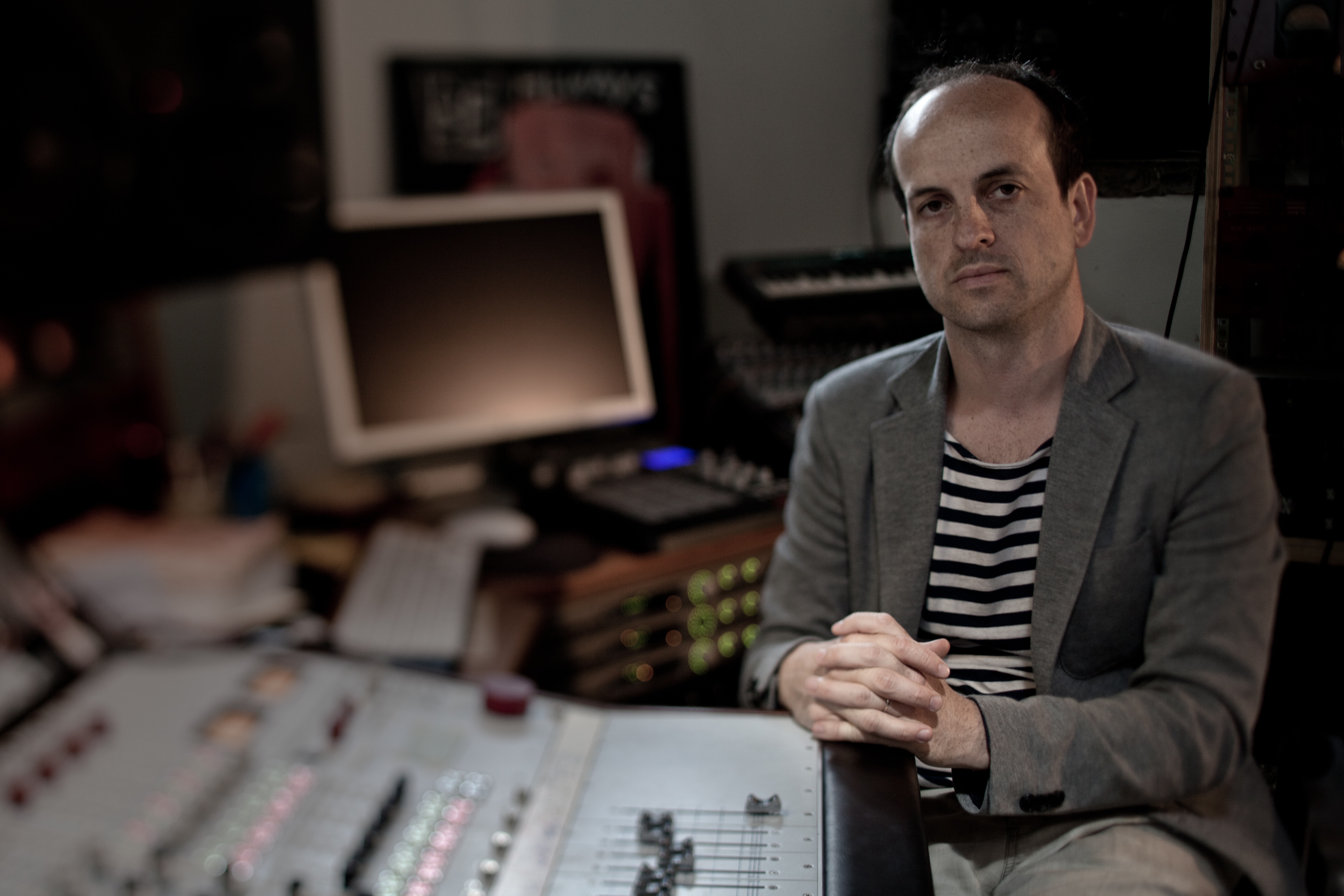On the same day of release as his Boiler Room set at the British Library Sound Archive, avant-garde electronic music composer Matthew Herbert debuted his latest piece, 20 Pianos, at the Oxford Contemporary Music Festival.For the piece, commissioned as part of the New Music Biennial, Herbert takes 20 pianos from around the world, from owners as varied as Rachmaninov, Mahler, a church, and a prison, and alters them in electronic ways that include amplification and sampling. Given Herbert's broad work with collaborators such as novelist Will Self and chef Heston Blumenthal, and his 2011 album ONE PIG, which tracks the life, death, and plating of a pig, one shouldn't be surprised at the ambition of this project. But beyond sonic storytelling, 20 Pianos is really about how every instrument is a story in itself, from the sound it generates to its build and history."Every piano tells a story, and I will be telling the story of 20 unique pianos from around the world, amplifying their different tones, timbres, tunings and histories," said Herbert. "From Steinways at Abbey Road or Sydney Opera House, to battered school primary school pianos or forgotten out-of-tune family pianos."
Given Herbert's broad work with collaborators such as novelist Will Self and chef Heston Blumenthal, and his 2011 album ONE PIG, which tracks the life, death, and plating of a pig, one shouldn't be surprised at the ambition of this project. But beyond sonic storytelling, 20 Pianos is really about how every instrument is a story in itself, from the sound it generates to its build and history."Every piano tells a story, and I will be telling the story of 20 unique pianos from around the world, amplifying their different tones, timbres, tunings and histories," said Herbert. "From Steinways at Abbey Road or Sydney Opera House, to battered school primary school pianos or forgotten out-of-tune family pianos." "I will sample sounds from each of them as well as document photographs and oral histories," he added, noting the varied histories and builds of the pianos, which include a piano from a Victorian Cult and even the Steinway John Lennon used for "Imagine."The Victorian Cult's piano, a Broadwood concert grand from 1845, is an interesting inclusion. Built from tropical timber, it was made for a vicar in the West Country named Henry Prince, who Alistair Lawrence of John Broadwood & Sons, Ltd. describes as "something of a rogue,"— that would be putting things mildly. Like Father Yod of the The Source Family, Prince was something of a guru, worshipped by a harem of 60 female "disciples" at a place called New Charlinch in Somerset. One can only imagine what this piano has seen.
"I will sample sounds from each of them as well as document photographs and oral histories," he added, noting the varied histories and builds of the pianos, which include a piano from a Victorian Cult and even the Steinway John Lennon used for "Imagine."The Victorian Cult's piano, a Broadwood concert grand from 1845, is an interesting inclusion. Built from tropical timber, it was made for a vicar in the West Country named Henry Prince, who Alistair Lawrence of John Broadwood & Sons, Ltd. describes as "something of a rogue,"— that would be putting things mildly. Like Father Yod of the The Source Family, Prince was something of a guru, worshipped by a harem of 60 female "disciples" at a place called New Charlinch in Somerset. One can only imagine what this piano has seen. It's these kinds of stories that inspire Herbert in his modern "electronic explorations" with the pianos. I, for one, would love to see what Herbert does with the pianos owned by Johann Christian Bach (graced by Mozart at a house party) and Ivor Novello, one of the 20th century's great composers and entertainers."The composition will be for solo pianist, inspired by the stories of the pianos and their owners," he said. "I'll commission my colleagues at the Radiophonic Workshop to create bespoke software and hardware that can transform a simple inanimate object, like a table, in to a virtual piano. Conjuring the sounds of these pianos from thin air—a kind of conjuring trick."
It's these kinds of stories that inspire Herbert in his modern "electronic explorations" with the pianos. I, for one, would love to see what Herbert does with the pianos owned by Johann Christian Bach (graced by Mozart at a house party) and Ivor Novello, one of the 20th century's great composers and entertainers."The composition will be for solo pianist, inspired by the stories of the pianos and their owners," he said. "I'll commission my colleagues at the Radiophonic Workshop to create bespoke software and hardware that can transform a simple inanimate object, like a table, in to a virtual piano. Conjuring the sounds of these pianos from thin air—a kind of conjuring trick." Other pianos include one owned by the Radford sisters, the first to set up an English performance of Mozart's "Idomeneo" and "Clemenza di Tito" operas; the square piano owned by Edgar Elgar, a late 19th and early 20th century British composer who was early to embrace recording technologies; and the Queen Mother's Marshal & Rose Baby grand piano, housed at Her Majesty's Chapel Royal song room.
Other pianos include one owned by the Radford sisters, the first to set up an English performance of Mozart's "Idomeneo" and "Clemenza di Tito" operas; the square piano owned by Edgar Elgar, a late 19th and early 20th century British composer who was early to embrace recording technologies; and the Queen Mother's Marshal & Rose Baby grand piano, housed at Her Majesty's Chapel Royal song room.

 20 Pianos, which runs for 65 minutes, premiered last night at the Oxford Contemporary Music Festival, featuring performances by Sarah Nicolls and Sam Beste.This article originally appeared on our sister site, The Creators' Project.DJ Pangburn is a writer living in Brooklyn. He's on Twitter - @djpangburn--Like pianos and electronics? Check these out:Firsties and Faves: Giorgio MoroderWe Went to Moogfest Where Brains Meet BassMaking Instruments Out of Car Parts
20 Pianos, which runs for 65 minutes, premiered last night at the Oxford Contemporary Music Festival, featuring performances by Sarah Nicolls and Sam Beste.This article originally appeared on our sister site, The Creators' Project.DJ Pangburn is a writer living in Brooklyn. He's on Twitter - @djpangburn--Like pianos and electronics? Check these out:Firsties and Faves: Giorgio MoroderWe Went to Moogfest Where Brains Meet BassMaking Instruments Out of Car Parts
Advertisement


Advertisement




